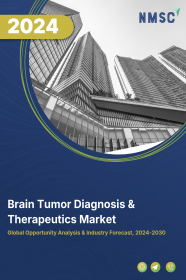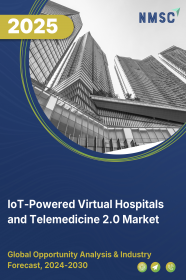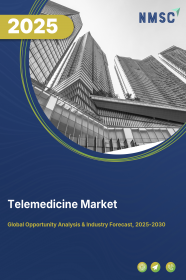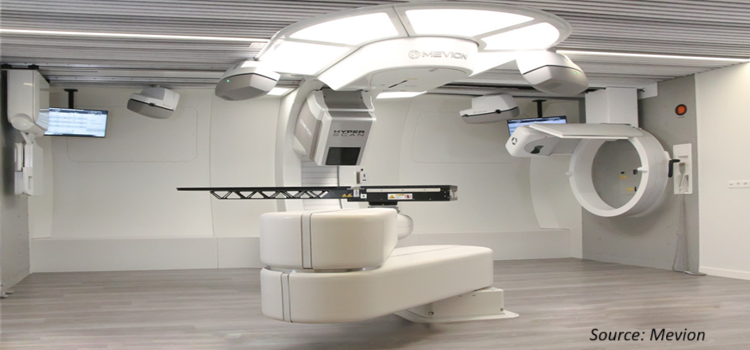
Brain Tumor Diagnosis & Therapeutics Market by Type (Primary Brain Tumor and Secondary Brain Tumor), by Diagnosis Type (MRI, CT-Scan, Tissue Sampling, PET CT-Scan, Cerebral Arteriogram, Lumbar Puncture, Molecular Testing, and EEG), by Therapy (Chemotherapy, Gene Therapy, Immunotherapy, Radiation Therapy, Targeted Therapy, and Surgery), and by End User (Hospitals, Ambulatory, and Surgical Centers)- Global Opportunity Analysis and Industry Forecast 2024-2030
US Tariff Impact on Brain Tumor Diagnosis & Therapeutics Market
Trump Tariffs Are Reshaping Global Business
The Global Brain Tumor Diagnosis & Therapeutics Market size is estimated to be USD 484.6 million in 2019 and is predicted to reach USD 1107.2 million by 2030 with a CAGR of 7.8% from 2020-2030. Growth of abnormal cells, in or around the brain is called as brain tumor. Tumors directly destroy the healthy brain cells and also damage other parts of the brain by causing inflammation, brain swelling and pressure within the skull. Brain tumors are either malignant or benign and are needed to be diagnosed in time to provide appropriate treatment.
Currently, variety of exams are conducted to diagnose the tumor and several therapies are available to treat brain tumors. Diagnosis with the help of MRI or CT scans helps in locating the tumor and identify its characteristics. The type of treatment recommended depends upon the type and size of the tumor, its location in the brain and overall health of the patient. Treatment options include surgery, chemotherapy, radiation therapy, targeted biological agents, or a combination of any of these. Despite the surgical advancements, the prognosis for patients with brain tumors remains poor. Therefore novel approaches are needed for improved management of patients with brain tumors in terms of early diagnosis, tracking therapeutic response, and improved therapies. Recent advances with nanoparticles and improved imaging techniques offer significant ways for diagnosis and treatment of brain tumors.
Market Dynamics and Trends:
With growing population, large number of people are susceptible to neurological conditions. Increasing aging population and growing prevalence of brain cancer are the major factors driving the demand for brain tumor diagnosis and therapeutic alternatives. Moreover, growing focus on development healthcare infrastructure, emerging applications of gene therapy in regenerative medicine, increasing adoption of stem cell technology and increasing awareness regarding advanced technologies are some additional factors contributing to the growth of the Brain Tumor Diagnosis & Therapeutics market. However, high cost of treatment, and lack of skilled professionals are some of the factors that are likely to hinder the growth of brain tumor diagnosis and therapeutics market.
Major growth strategies adopted by the organizations and players in the brain tumor diagnosis and therapeutics market are research and development and product launches, geographical expansion, collaborations, mergers & acquisitions, and pricing strategies. In July 2018, The Harley Street Clinic, part of HCA Healthcare UK adopted new minimally-invasive Visualase technology developed by Medtronic for treatment of patients with complex and aggressive brain tumors. Also, in March 2018 OICR’s Brain Cancer Translational Research Initiative (TRI) and the Terry Fox Precision Oncology for Young People Program (PROFYLE) collaborated to deliver improved treatment options to young brain cancer patients. Such developments enable the players to offer innovative products in the Brain Tumor Diagnosis & Therapeutics market and gain a competitive share on global level.
Market Segmentations and Scope of the Study:
The brain tumor diagnosis & therapeutics market share is analysed on the basis of product, therapeutics, end user and geography. The product segment covers the market for MRI, CT scan, tissue sampling, PET-CT scan, cerebral arteriogram, lumbar puncture, molecular testing, and EEG. By therapeutics the brain tumor diagnosis & therapeutics market is divided into surgery, radiation therapy, chemotherapy, immunotherapy, and targeted therapy. The geographical segmentation covers North America, Europe, Asia Pacific, and Rest of the World.
Competitive Landscape:
Comprehensive competitive analysis and profiles of major market players such as GE Healthcare, Hitachi, Ltd., Philips Healthcare, Siemens Healthineers, Toshiba Corporation, Fujifilm Corporation, Novartis, Merck & Co., Inc. Shimadzu Corporation, and Carestream Health is also provided in this report.
KEY PLAYERS
-
- GE Healthcare
- Hitachi, Ltd.
- Philips Healthcare
- Siemens Healthineers
- Toshiba Corporation
- Fujifilm Corporation
- Novartis
- Merck & Co., Inc.
- Shimadzu Corporation
- Carestream Health

















 Speak to Our Analyst
Speak to Our Analyst





















